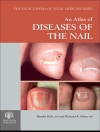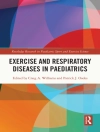This book includes detailed discussions of the latest science in the embryogenesis of spinal dysraphic malformations, and a well-illustrated guide to their surgical repair. In addition to covering the actual malformations, and because, with the probable exception of prenatal closure of the open neural tube defect, all surgical repairs of other dysraphic malformations require sophisticated intraoperative neurophysiological monitoring (IONM), an in-depth chapter is devoted to the physics, physiology, techniques, parameters and patterns of electrophysiological responses in representative dysraphic lesions. As the evaluation of bladder function is crucial for the assessment of the pre-operative clinical status and long-term outcome of the patient with spinal dysraphism, an entire chapter is devoted to the neurophysiology of micturition, the symptoms of neuropathic bladder, and to the explanation of the complexities of proper urodynamics. The book will be an invaluable tool for paediatric neurosurgical consultants interested in spinal dysraphism and for fellows and other trainees in this discipline.
Cuprins
1 Split Cord Malformations – A Gastrulation Defect. Open Foetal Surgery for Myelomeningocoele, Achieving a Balance.- 2 A New Surgical Paradigm For Post-Natal Repair of Open Neural Tube Defects Using Intraoperative Neurophysiology Monitoring.-3 Local Spinal Nondisjunction in Primary Neurulation : Limited Dorsal Myeloschisis, Congenital Spinal Dermal Sinus Tract, and Mixed Lesions.- 4 Junctional Neural Tube Defect (JNTD) – A Rare and Relatively New Spinal Dysraphic Malformation.- 5 Total and Subtotal Resection of Complex Spinal Lipoma, Radical reconstruction of the Neural Placode, and Expansile Duraplasty; Navigating the Labyrinth.- 6 Secondary Neurulation Defects : Retained Medullary Cord, Terminal Lipoma, and Other Filum Abnormalities.- 7 Secondary Neurulation Defect : Terminal Myelocystocoele, , a Biological Leviathan.- 8 Updates On Intraoperative Neurophysiology Monitoring During Spinal Dysraphism Surgery.- 9 Urological Aspects of Spinal Dysraphism.
Despre autor
Widely acclaimed internationally for his pioneering work on disorders of the paediatric spine especially in the field of spinal dysraphism and other congenital malformations, Dachling Pang is Professor of Paediatric Neurosurgery at the University of California, Davis, and was conferred an Adjunct Professorship from the Nanjing Medical University, China, an Honorary Professorship from Sun Yat-Sen University, China, and Visiting Professorship from the University of Cape Town, South Africa. He is also an honorary member of the Neurosurgical Society of Hong Kong. He has been an invited speaker on over 410 occasions to many countries, and was also guest surgeon in many places including Hong Kong, Singapore, India, Beijing, Nanjing, Guangzhou in China, Taiwan, South Africa, and Thailand.
With research interests encompassing neuroembryology, paediatric spinal injuries, spinal cord congenital malformations, embryology and bony malformations of the craniovertebral junction, intraoperative neurophysiology monitoring, and neuroendocrinology, he has been the principle recipient of a National Institute of Health RO-1 Grant on intraventricular haemorrhage in a canine model, and a Centre Project Grant from the University of Pittsburgh on the induction of precocious puberty using a non-invasive balloon in the third ventricle in a primate model. His published list includes over 200 refereed articles and chapters, many of which are landmark publications.
Kyu-Chang Wang graduated in Medicine at the Seoul National University, where he completed his internship and his residency in neurosurgery in 1984. In 1987, he became a member of the faculty of the Department of Neurosurgery in the College of Medicine at SNU.
From 1990 to 1992, Kyu-Chang Wang worked as a research fellow under the guidance of Dr. David G. Mc Lone at Children’s Memorial Hospital in Chicago. He observed clinical activities in pediatric neurosurgery and when he returned to Korea, in 1993, he started a spina bifida clinic and collaborated in clinical and laboratory activities. From 2004 to 2008, Kyu-Chang Wang was the Dean of the Seoul National University College of Medicine. In 2012-2013 he was the president of the International Society of Pediatric Neurosurgery and currently is President of the Asian-Australasian Society for Pediatric Neurosurgery and of the National Academy of Medicine of Korea. His main interest in pediatric neurosurgery are congenital anomaly, moyamoya disease, rhizotomy for spasticity. He currently is part-time faculty member of the Center for Rare Cancers, Neurosurgery, National Cancer Center and Professor Emeritus, SNU College of Medicine & SNU Children’s Hospital. He authored 417 journal publications and 26 book chapter.












